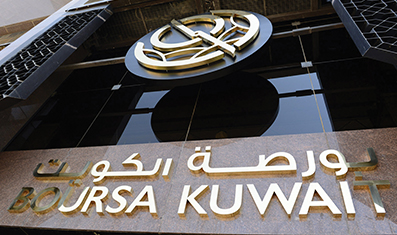Kuwait’s capital markets have come a long way in recent years. Since the 2010 creation of a supervisory and regulatory body, the Capital Markets Authority (CMA), the conduct of securities trading in the country has become fairer and more transparent.
In a sign of how quickly the country’s financial markets have matured, global index provider FTSE Russell included Kuwait in its emerging markets list in September 2018, a move that is expected to usher in between $500m and $800m of foreign investment in Kuwait’s equity markets. Not only will these inflows contribute to the Kuwaiti bourse’s liquidity, they will also firmly place Kuwait on the radar of foreign investors.
“We have recently seen several government reform initiatives leading to improved capital market activity with strong signs of market recovery,” says Shaikha Al-Bahar, deputy group chief executive of the National Bank of Kuwait.
Upgraded stock exchange
Following the CMA’s formation, the regulator then established a private entity, Boursa Kuwait, in 2014 to manage exchange operations at the country’s stock exchange. In April 2016 it was given full operational control of the Kuwait Stock Exchange – which was renamed Boursa Kuwait – and set about upgrading its infrastructure and business procedures to meet international standards. This included making changes to the settlement cycle, improvements to trading efficiency as well as the introduction of new service offerings including block trades.
These reforms, and others, were sufficient for FTSE Russell, a global index provider, to include Kuwait in its coveted emerging market index. Kuwaiti stocks were introduced to the index in a phased approach: 50% of their weightings were provided to the index in September 2018 with the remaining 50% in December 2018. Prior to its inclusion, FTSE Russell expected Kuwait to have a 0.4% weighting in its emerging market index.
“The CMA and Boursa Kuwait have worked tirelessly to promote global best practices since the drafting of the CMA law in 2010. Stringent requisites, reforms and developments were introduced and have reflected positively in the recent inclusion of Boursa Kuwait in the FTSE Russell emerging market index and a potential upgrade by MSCI in June 2019,” says Ms Al-Bahar.
Indeed, Kuwait’s reform efforts have caught the attention of another global index provider, MSCI, which is considering upgrading the country to 'emerging market' status from its current 'frontier' classification as part of its 2019 review. If any upgrade was achieved it would be made effective in 2020 and would hopefully attract even more foreign investor inflows to the country.
Equity market opportunity
As Kuwait’s reform vision progresses, so too will opportunities for its equity market to develop further. This includes, for instance, the growing number of family offices looking to list their businesses publicly, a trend that is playing out across the wider Gulf region. This is largely due to factors that include increased competition and the difficulties of doing business in the new oil price environment. Meanwhile, other privately run businesses are also looking to benefit from increased investor interest in Kuwait, suggesting a strong potential initial public offering (IPO) pipeline.
“We are quite optimistic on the outlook for Kuwait’s capital market activity. On the equity front, we expect IPO activity to remain strong, supported by the general improvement in macroeconomic activity,” says Ms Al-Bahar.
All of this bodes well for Kuwait’s equity markets. But it is recognised that more work needs to be done to develop the country’s local debt markets. Though local corporates and financial institutions do issue primary, off-market debt in the domestic arena, with Burgan Bank’s 2019 Kd100m ($329.5m) transaction a case in point, more momentum is required to take the market to the next level. It will involve a mix of regulatory and infrastructure reform, as well as more institutions moving away from bank funding. The latter objective will be difficult to achieve, however, as aggressive pricing from the country’s banks makes the loan market an attractive proposition.
Looking ahead, the next major milestone for the development of Kuwait’s capital markets will be the proposed listing of 50% of the shares in Boursa Kuwait itself following the February 2019 acquisition of a 49% stake in the entity by an investment consortium. Expected to occur in the fourth quarter of 2019 or the first quarter of 2020, this will add further impetus to Kuwait’s long-term ambitions for its capital markets.












